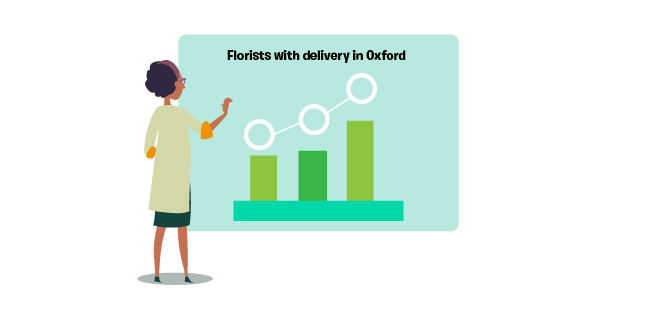Whether you’re a new start up or an established business, regularly looking at your competition is important.
It helps you to work out where you stand, and how to ensure you retain an edge over their products or services.
But have you ever considered a competition analysis for your digital marketing strategy?
If you’re new to the world of content marketing, you’ve probably read lots about how great a content marketing strategy could be for building your brand’s online presence. However, just like you would conduct a competitive analysis before launching a product, consider conducting one for your content marketing plan.
When you put enough time and research into it, a competition analysis will allow you to better prioritise your strategy. You’ll benefit from understanding what your competition doing is online, and what is working for them. You could even find gaps in the online market or discover new opportunities for your business.
Your content should be focused on helping your customers to solve their problems. But a competition analysis will help you align this content to meet their needs. By understanding how well you and your competitors are doing, you’ll know where best to focus your energies. And, drive real results for your business.

What is an SEO Competition Analysis?
Competition analysis is a critical part of your overall marketing strategy.
It’s all about:
- Understanding where you are in the market
- Knowing who your competition is
- Working out what actions to take in order to outperform them
A competitive analysis is particularly important for online businesses. With search engines being the battleground on which you and your competitors will fight for site visitors.
In terms of SEO, it’s all about identifying your competitors. Start by evaluating the SEO strategies which are relative to your brand. Then, determine your own strengths and weaknesses in comparison to them.
Competition analysis should always begin with understanding your own position. Are you in position one for your top 3 keywords? Does your website post new content daily, weekly, or even monthly?

Once you have a good understanding of your brand’s current performance, you should then identify your competitors. These will be other businesses that are either directly, or indirectly trying to attract the same consumers as you. As a starting point, focus on those competitors directly above and below you in the search engine results pages (SERPs).
After careful analysis (see my SEO competitor analysis blog for ideas), it’s time to plan. First, start by planning where you need to get to in order to overtake the competition.
How a Competition Analysis Can Get Your Business Ahead
Let’s look at an example of how a business might benefit form a competition analysis.
Meet Jenny.
Jenny runs a small florist in Oxfordshire which has made steady progress over the past few years. This is due to word of mouth reviews from local townspeople who love her flower arrangements.

In response to her growth, Jenny has recently purchased two delivery vans. This is so she can deliver her flowers to even more customers.
But how do these people find out that Jenny’s business exists?
Well, Jenny has a website of course. However, she hasn’t really updated any of the pages since it was first built. It contains all the basics of her business. This includes what services she offers, her location, business hours and prices.
Jenny wants to try and reach more customers by building a comprehensive content marketing strategy. But before she can build her strategy, she needs to know who to target. And, see what competition is standing in her way.
She decides to conduct a competition analysis. She wants to see how many other florists in the area are competing for her main keyword ‘florists in Oxford’.
One of the UK’s largest flower delivery services, Bloom & Wild ranks in position 1 for Jenny’s search term. With high page and domain authority, they have lots of external links. This means trying to outrank them for this keyword could be quite laborious. Not to mention, she doesn’t have a huge budget. Or the capacity to produce the amount of content needed to do so.
In second position for the keyword ‘florist in Oxford’ is Fresh as a Daisy. This is a local competitor, Jenny knows that they are relatively similar in their size and the services they offer.

She sees that their website has lots of instances of the search term ‘florists in Oxford’. However, it doesn’t have any specific pages on delivery services. This is Jenny’s new business venture and she sees it as a new opportunity. By searching the popularity of the search term ‘flower delivery in Oxfordshire’ she discovers it has 250 searches a month.
That’s 250 people who could be engaging with her business each month.
And so, Jenny decides to create webpages dedicated to her delivery services. As well as the local areas she covers. This way, she may be able to increase her rankings and gain more business.
With her new focus, she creates a content plan. This includes her current rankings for ‘flower delivery in Oxfordshire,’ ‘flower delivery in Abingdon-on-Thames,’ ‘flower delivery in Wheatley,’ and other local areas her services cover.

The plan also includes her content schedule; when she’ll write her content and the date she publishes the pages. This will allow her to track keyword performance. In order to see if her rankings for ‘florists in Oxford’ increase. As well as keeping an eye on a few other long-tail terms such as; ‘florists with delivery in Oxford’ to see if they are improving.
After publishing 10 webpages dedicated to delivery services in local areas, Jenny now ranks in position 1 for ‘florists with delivery in Oxford’. The spike in visitors to her website looking for florist delivery services has increased in her sales.
Without conducting a competition analysis, Jenny would’ve missed this opportunity for growth. By looking to her competitors, she was able to target the people who are interested in local flower delivery services. Using both SEO and content to do so.

Competition Analysis is All About Finding Opportunities
Competition analysis is about seeing how you can get above your competition in a practical and smart way. As opposed to just simply creating articles and seeing what sticks.
As we saw from Jenny, it was doing a competitive analysis that allowed her to align her goals practically. This allowed her to spend time on the things that matter. It also gave her a great indication of which keywords to start targeting. As well as how she could work her way to the top of the SERPs (search engine results pages) for those keywords.
SEO Competition Analysis Allows You to Fill the Gaps
Competition analysis allows you to see what content is working for the keywords you are trying to rank for.
But, this also presents an opportunity to see where the gaps in your keyword plan are.

For example, after conducting a competitive analysis, you may see that you are ranking for a popular search term. This new search term will present you with new ways to drive lots of traffic to your website.
However, when looking at other closely related terms, it could also show that you’re not ranking for your preferred search term. If your competitors aren’t ranking this term either, this is your chance to fill the gap and claim the top spot.
By seeing where these gaps are, you will discover new opportunities. These will help you to grow your audience o adjust your content marketing strategy accordingly.
Competition Analysis Allows You to Size Up the Competition
Another benefit of spending time on a competition analysis is that is allows you to see the size of the beasts you are dealing with. As a new start-up, a competitive analysis is a great starting point for your marketing strategy. It will afford you awareness of how much effort will be needed to break into the industry.
It’s good to have an understanding of who the big market players are too. As well as viewing the direct competition from other smaller businesses.

For example, if you’re a small and cheap clothing boutique, you may want to target keywords like ‘cheap clothing’. However, your biggest competitor is likely to be a larger brand such as Boohoo or Missguided. This means in order to outrank them, you’re going to need a large workforce. One that can create tonnes of amazing content daily, with a huge budget to boot.
Instead, you should try and focus your efforts. For instance, by narrowing your target down to more specific phrases, such as ‘pink shoes.’ This keyword is much more specific.
As such, it will have less competition than much broader keyword terms. This means you can create a comprehensive content strategy that hones in on your speciality. One which will drive more achievable results based on your time and budget.
Remember the example I gave above?
Jenny was able to see that she was competing with big floristry brands like Bloom & Wild for the term ‘florists in Oxford’. However, after seeing the smaller and more direct competitors, she changed strategy. She adapted her content plan to focus on her delivery service to outrank smaller business, Fresh as a Daisy.
Remember, you only need to be better than your competition to win the Google race.

Improve Your Overall Marketing Strategy
If you’re conducting a comprehensive competition analysis, think broadly. You’ll want to look at SEO, social media, online directories, email campaigns and more.
This could again, present some great opportunities for you to improve different areas of your digital marketing strategy. For example, if one of your competitors has a great social media presence, learn from them. You can see what’s working well for them and find inspiration on how to improve yours.
The key to beating the competition is to utilise the strategies of other competitors. By implementing these into one cohesive content marketing strategy, you can begin to increase your traffic and sales.
Focus Your Attention
Putting marketing to one side for a moment, let’s look to business.
From a business perspective, a comprehensive competitor analysis will allow you to focus your energies on the things that matter.
Looking at what consumers are searching for, and where competitors are directing their attention can help your company to pivot your strategies. Helping you to hone in on the areas of your business that are most relevant right now.
Not only will you be increasing your revenue, you’ll also be making effective use of yours and your employee’s time. This affords you the time to focus on things that really create results.

Creating & Articulating Your Plan
Going back to a content marketing perspective, conducting an effective competition analysis should also help you evaluate the size of the challenge ahead. To learn how much work is required to get you to that top spot for rankings.
You can create a content marketing strategy outlining a set of practical details and goals. This is something that you can get started on right away.
After all, you may need to persuade other decision makers in your company who are not as marketing-savvy as you. Being able to explain why you should be focusing so much time, effort and money into a plan is important.
Presenting a practical plan with clearly defined goals will help others better understand and support your strategy.
Prioritise Actions
In part 1 of my Guide to Content Marketing, I mentioned how, at the start of your content marketing strategy, you will need to invest a lot of time and effort into driving results for your business.
You want to make sure you’re making effective use of this time.
A cohesive competition analysis will create a list of tasks for you to complete. However, it will also give you a practical way to get started. You’ll be creating a detailed plan which indicates, based on search and level of competition, which of your long list of tasks you should prioritise.
 For example, let’s look again to Jenny and her floristry business. She was able to see that her main competitor wasn’t targeting home delivery services for florists. Because the competition was low, she effectively prioritised creating local area delivery pages. Subsequently, she was able to increase her rankings in the short term, before moving onto bigger projects.
For example, let’s look again to Jenny and her floristry business. She was able to see that her main competitor wasn’t targeting home delivery services for florists. Because the competition was low, she effectively prioritised creating local area delivery pages. Subsequently, she was able to increase her rankings in the short term, before moving onto bigger projects.
If she didn’t have this indicator, she may have never increased her rankings. If she’d have targeted the most competitive keywords it would have taken time, content, and money to deliver any results. By going for the smaller search terms with lower competition, she easily increased other rankings. In addition, this improved the overall performance of her SEO.
Using SEO Competition to Get Your Business Ahead
Although a competition analysis can appear as a long and arduous process at the start, the benefits are huge.

Once you’ve put the initial hard work in – more details on how to conduct a comprehensive SEO competition analysis can be found here – you’ll have a clearly defined and practical strategy to implement and drive results.
Not only can it open up opportunities for you to market your business. But, with enough time and research, it can help you to enhance your overall marketing strategy. As well as effectively focus your business on areas which your target audience are clearly interested in.
Finding opportunities to increase your rankings is crucial. It will help drive more traffic away from the competition to your website instead.
Just remember, with opportunity comes growth
My team and I would be happy to help you achieve this growth. We offer in-depth competitor analysis reports as one of our many services. Learn why your competition is ranking higher than you. Then let’s work together to build a robust plan to start beating them.
Contact me today for an obligation-free chat. We can discuss your SEO goals and how a marketing consultant like myself, can drive real results for your business.







